Cyrielle Callot tells us what happens to food waste
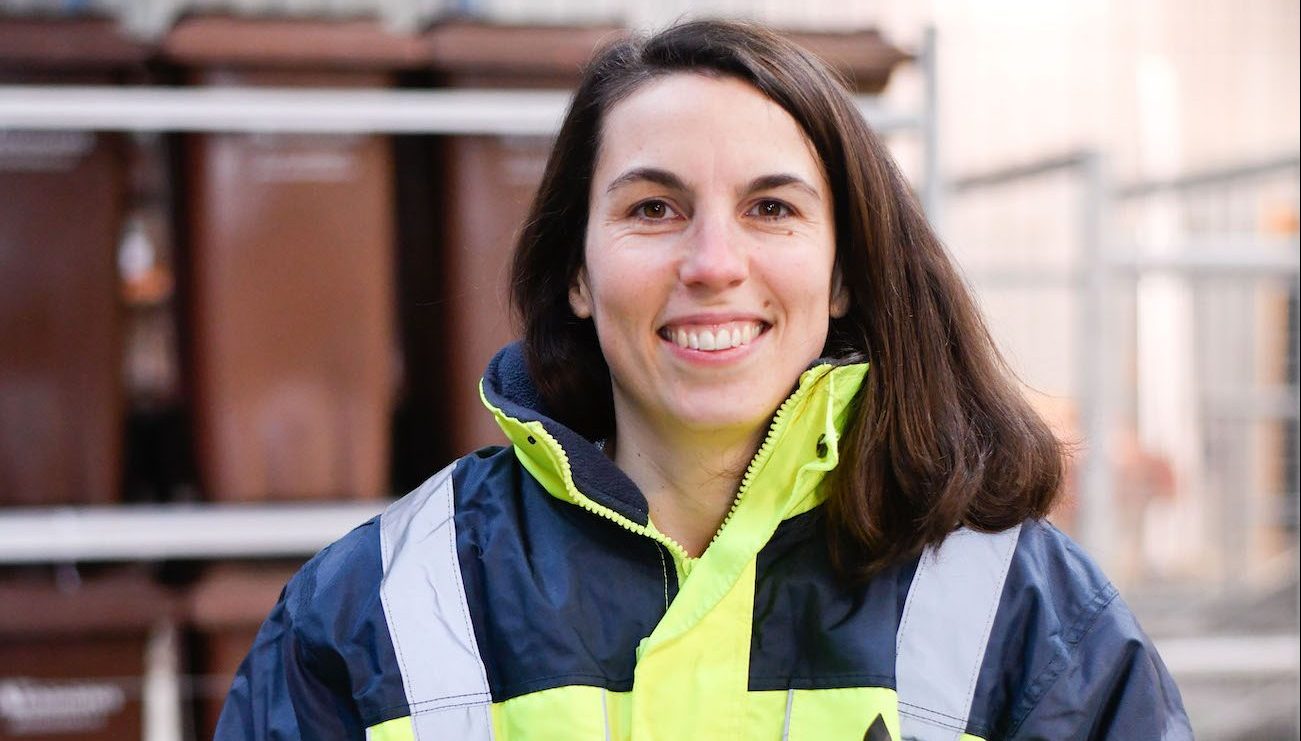
Five years ago, young entrepreneur Cyrielle Callot (H.11) developed a solution to collect and turn bio-waste into compost. Now a national network, Les Alchimistes, her extremely virtuous business, is blooming. She just earned an HEC Mercure Award for her achievement.
How did entrepreneurship start for you?
I started at Groupon, when the concept did not even exist in France yet. We started with a company called CityDeal and when I did the interviews, the company hadn’t even been created. When I joined BlaBlaCar, it was still called covoiturage.fr and we were less than 30, pretty much only operating in France and we had only 1 million users. I was in charge of growth. We developed the company in 20 countries, 60 million people used it, and there were 500 people in the team when I left. So as a matter of fact, as a next step, it was quite natural to look for a project in which I could really start from the very beginning.
Why food waste treatment?
What brought me to les Alchimistes was mostly composting. I’m a big compost fan of compost, the result of the transforming organic waste. It’s a bit like soil, but it’s full of organic matter and lots of positive things. What passionate me about compost is that it is both the beginning and the end of the food chain. It has many living species in it, and with the oceans, it’s a huge carbon sink. It’s also what allows to avoid erosion… Soils are an exciting subject !
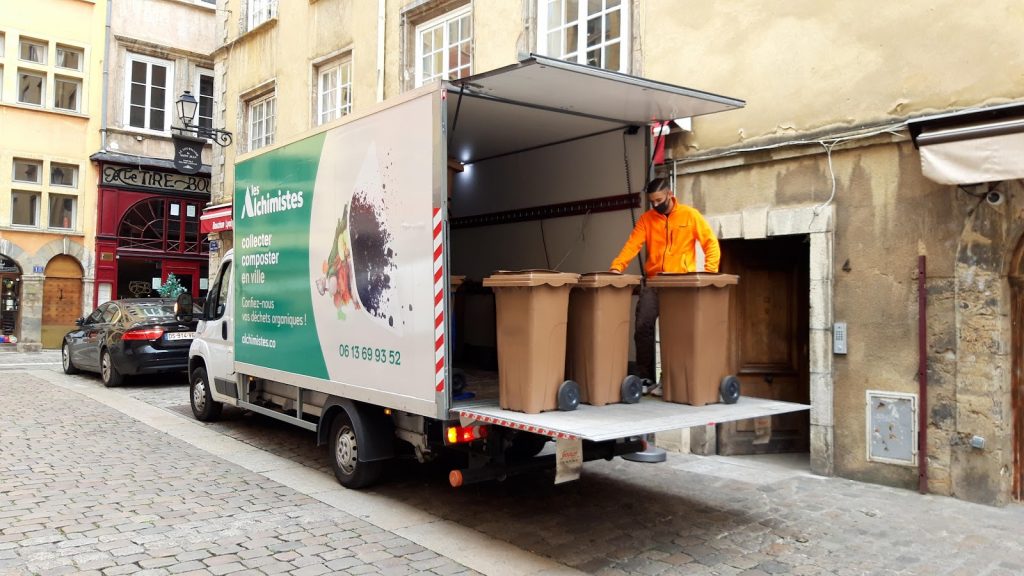
A bio-waste collection.
I enjoy topics revolving around changing habits. It was already the case in the car-sharing business. And it’s a fairly simple gesture to make than to put your bio-waste in a separate bin. The concept of waste that has been around for less than 200 years. We can instead see a resource here and make a circular economy and use this resource on a daily basis.
You created Les Alchimistes in 2018 in a very competitive environement. How did it grow?
We started with tackling a part of the bio-waste that was not covered yet, namely the bio-waste of the very urban city centers. We collected from a bunch of committed actors by bike. It’s far from being simple, but it’s a little bit easier than investing in a more powerful fleet of vehicles. Once we had ran our tests, learned and started to be heard, we wanted to expand our range of business by reaching out to bigger clients and by becoming more professional. This allowed us to grow progressively. We have always had this approach to be very entrepreneurial and to know how to start small.
These activities are volume activities. It is mostly infrastructures in which you need to invest. We have reception platforms and composting platforms and have to reach a certain volume to be able to make them profitable. That is always a matter of scale effect and a job that’s always in progress since we are growing strongly today.
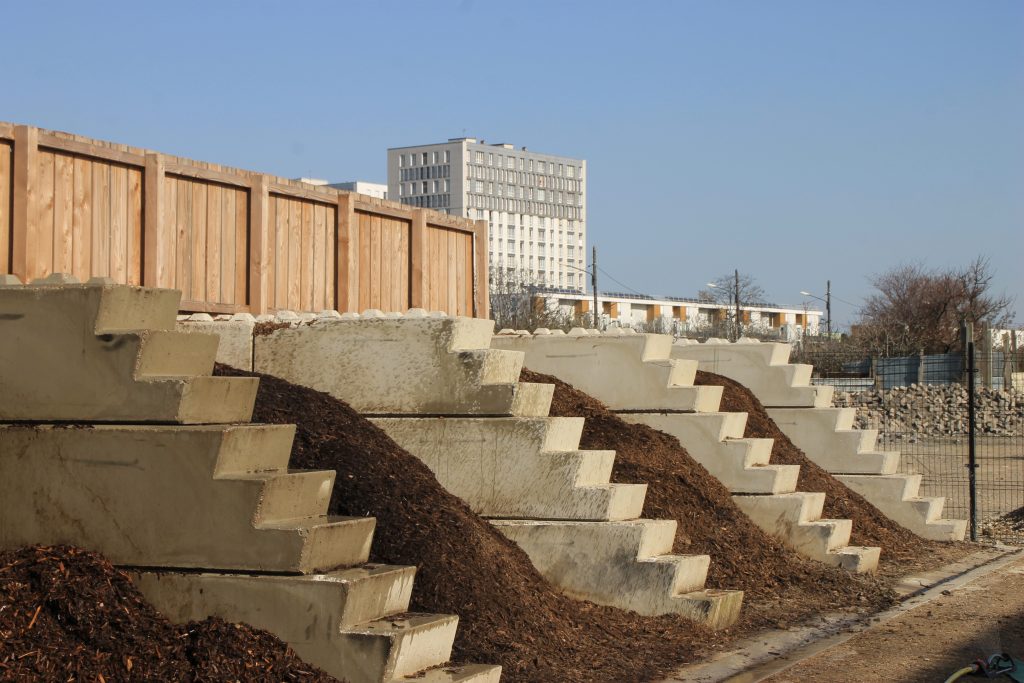
Compost bays.
And you have the law working for you…
We knew that there was this legal framework that would be very favorable. Historically, there is the AGEC law which progressively obliges everyone in France to sort their food waste at the source to make it valuable. This law has first started to apply to very large waste producers, the agro-industry, hypermarkets, etc. Gradually, it applied to smaller grocery stores, schools or hospitals. On January 1rst 2024, everyone in France will in theory have the legal obligation to have a solution at home to sort waste. Collectivities must put in place solutions to enhance these food waste. More and more, the markets we work on are really those of individuals, of communities.
In a business school language, it is quite an oligopolistic market. There are always three or four players on each city or agglomeration. Today we manage to work with several historical waste actors on all territories – Veolia, Suez, and others. We know how to deliver a very qualitative, very premium performance with the ability to collect waste in many smaller places, and they have the capacity to collect deposits from very large actors. Therefore, we are a good combination of actors.
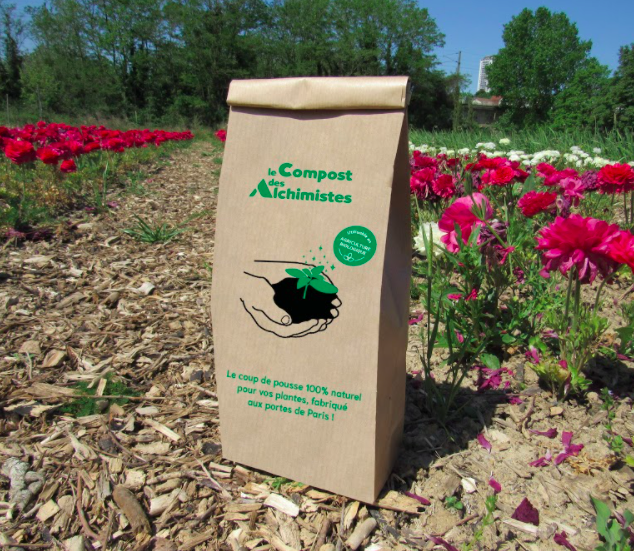
What sets you appart from the competition?
Our goal is to get everyone involved in the impact of sorting their waste. We make a mandatory awareness training for each of our clients. We will show them how to sort. Then we will encourage them to maintain their sorting quality by adopting an evolutive billing method: the more they sort, the less they pay. It works like an incentive. That is very appreciated. We measure the kilos of waste that we collect in each establishment and so it allows them to adapt their actions to fight against food waste. We are also very appreciated for our pristine customer service. We go get the bins right from the kitchen and we optimize our rounds so that they pay exactly the right price.
But most evidently, we offer a composting solution. The alternative to composting is methanization, which means using biogas to enhance food waste. Our production of compost is quite appreciated by customers because there is a circular aspect and they can witness how their food waste will be used.
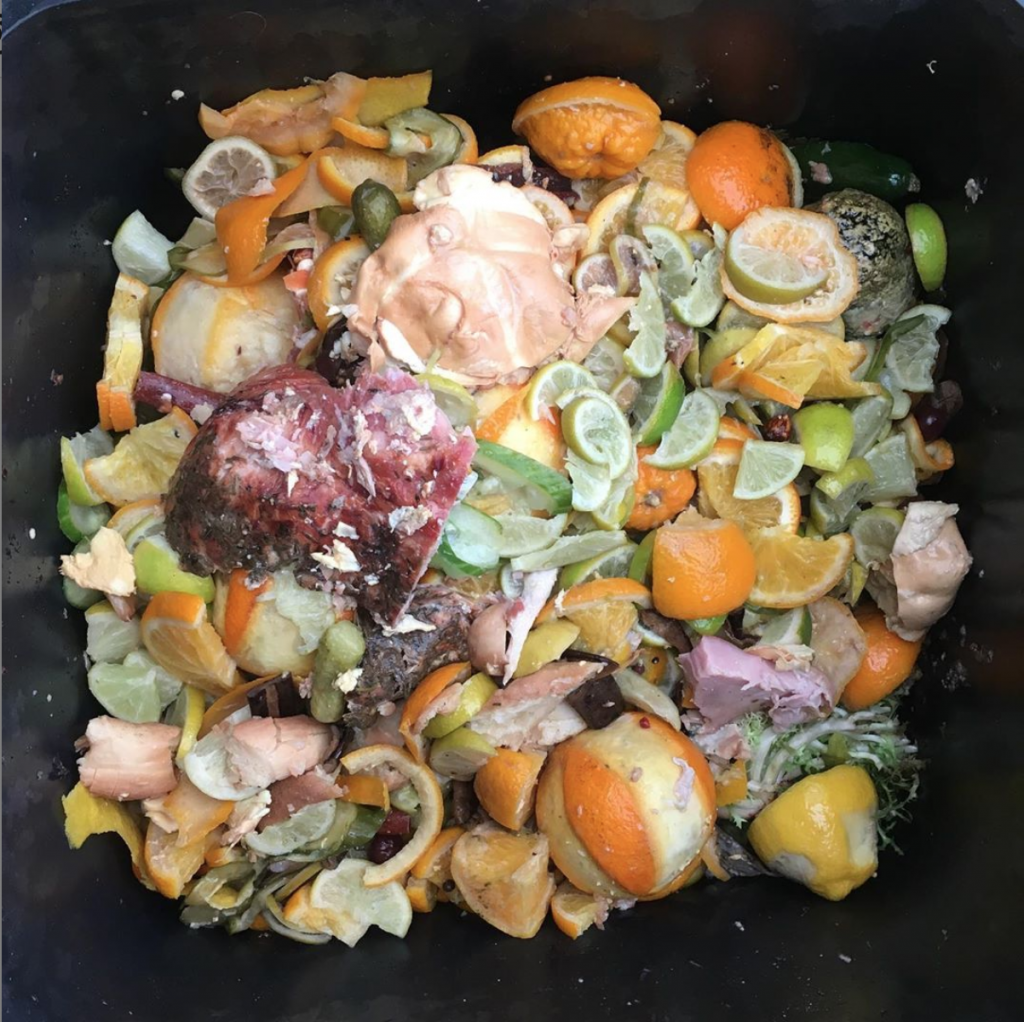
An example of bio-waste.
You raised 10 million last February. What are you going to do with it?
The goal of this fundraising is to continue to develop in the French territory. Today we are operating in 13 cities in France and our goal is to be present in 30 urban areas and keep on collecting as much food waste as possible to turn it into compost. Today, we are valuing about 18,000 tonnes of food waste annually. Our goal is to value 300,000 of it, which would represent about 10% of the market in French cities where our activity could be interesting. We think that 10% is the threshold above which we can have a systemic effect.
What is your vision of entrepreneurship?
For me, it was vital to go towards what I believed in. Entrepreneurship is daring to take the leap. Because every time it happened to me to jump into the unknown, I felt I was going to be alone in this. But we always find people who think the same, share the same convictions, and want to go forward. It gives us a crazy energy. I see entrepreneurship as creating a new trail.
All photos © Les Alchimistes
Published by Estel Plagué

